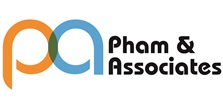UNITED STATES: New York Yankees Ruled Baseball’s EVIL EMPIRE
In New York Yankees Partnership v. Evil Enterprises, Inc., Opposition No. 91192764 (T.T.A.B. Feb. 8, 2013) (nonprecedential), the Trademark Trial and Appeal Board (TTAB or
In New York Yankees Partnership v. Evil Enterprises, Inc., Opposition No. 91192764 (T.T.A.B. Feb. 8, 2013) (nonprecedential), the Trademark Trial and Appeal Board (TTAB or Board) confirmed a belief long held by the Boston Red Sox baseball club and its diehard fans: that the New York Yankees club (Yankees) was baseball’s “Evil Empire.” The TTAB ruled that the mark BASEBALLS EVIL EMPIRE was likely to cause confusion as to source or sponsorship and falsely suggest a connection with the Yankees.
The Yankees opposed the application of Evil Enterprises, Inc. to register the mark BASEBALLS EVIL EMPIRE for various items of clothing. To prevail, the Yankees first had to prove ownership of the mark EVIL EMPIRE, even though the club itself never used it in connection with any goods or services. Relying on the public use doctrine, the TTAB noted that a party need not have actually used a mark “if the public nevertheless associates the mark with the goods or services of that party.” In this case, Evil Enterprises admitted that “the Yankees baseball team ha[d] been referred to and known as the ‘Evil Empire’ by the press, fans, media, [and] other Major League baseball teams.” Furthermore, the Yankees submitted hundreds of news articles and blog entries demonstrating that the public associated the term EVIL EMPIRE with the Yankees well before the applicant’s July 2008 filing date, and that the Yankees had “implicitly embraced” that designation. Based on the evidence submitted, the TTAB found that the mark EVIL EMPIRE, when used in connection with items related to baseball, referred unmistakably to the Yankees and that the Yankees therefore had a protectable interest in EVIL EMPIRE as a trademark.
Applying the du Pont factors—a 13-factor test for determining likelihood of confusion, as set forth in In re E.I. du Pont de Nemours & Co., 476 F.2d 1357 (C.C.P.A. 1973)—the TTAB noted that the considerable evidence submitted by the Yankees, including hundreds of news articles from major metropolitan newspapers, supported a finding that the term EVIL EMPIRE was famous in identifying the Yankees and entitled to a broad scope of protection. It also found the marks BASEBALLS EVIL EMPIRE and EVIL EMPIRE to be similar in appearance, sound and commercial impression. The only difference between them was the term BASEBALLS, which actually increased the likelihood of confusion because it defined the Yankees’ field of use, namely, baseball, and pointed even more directly to the Yankees baseball team.
The other du Pont factors favored a finding of likelihood of confusion as well. The items of clothing identified in Evil Enterprises’ application were identical to products sold by the Yankees club under its various brands, and they would be relatively inexpensive and likely to be purchased on impulse. The opposed application did not restrict the channels of trade either, so the TTAB further presumed that the clothing of both parties would be sold in the same channels of trade and reach the same consumers. Therefore, the Board found confusion likely.
The TTAB also rejected the applicant’s argument that its use of BASEBALLS EVIL EMPIRE was a “spoof and parody of the [Yankees].” The Board held that the applicant could not rely on the parody defense because the marks BASEBALLS EVIL EMPIRE and EVIL EMPIRE were confusingly similar.
The TTAB sustained the opposition on the ground that Evil Enterprises’ mark falsely suggested a connection with the Yankees. The BASEBALLS EVIL EMPIRE mark was a close approximation of the term EVIL EMPIRE and would be understood by consumers as referring to the Yankees. Moreover, the applicant intended to associate its products with the Yankees. Its own website was directed to selling clothing specifically to Yankees’ fans. Finally, the evidence regarding “fame or reputation” was such that consumers who would encounter the mark BASEBALLS EVIL EMPIRE on clothing would likely believe that the items were connected with the Yankees, even though no connection existed.
The applicant did, however, prevail on the Yankees’ disparagement claim. While the record supported a finding that BASEBALLS EVIL EMPIRE would be understood as referring to the Yankees, the TTAB noted that the Yankees admittedly embraced the EVIL EMPIRE designation by, for example, playing music from the “Star Wars” movies during games played at Yankee Stadium, and that the designation had a “‘positive connotation’ among Yankees’ fans”; both of these factors undermined any claim of disparagement.
Accordingly, the TTAB sustained the opposition on all of the grounds except for disparagement of the Yankees and refused registration of the applicant’s mark.
(Source: www.inta.org)


